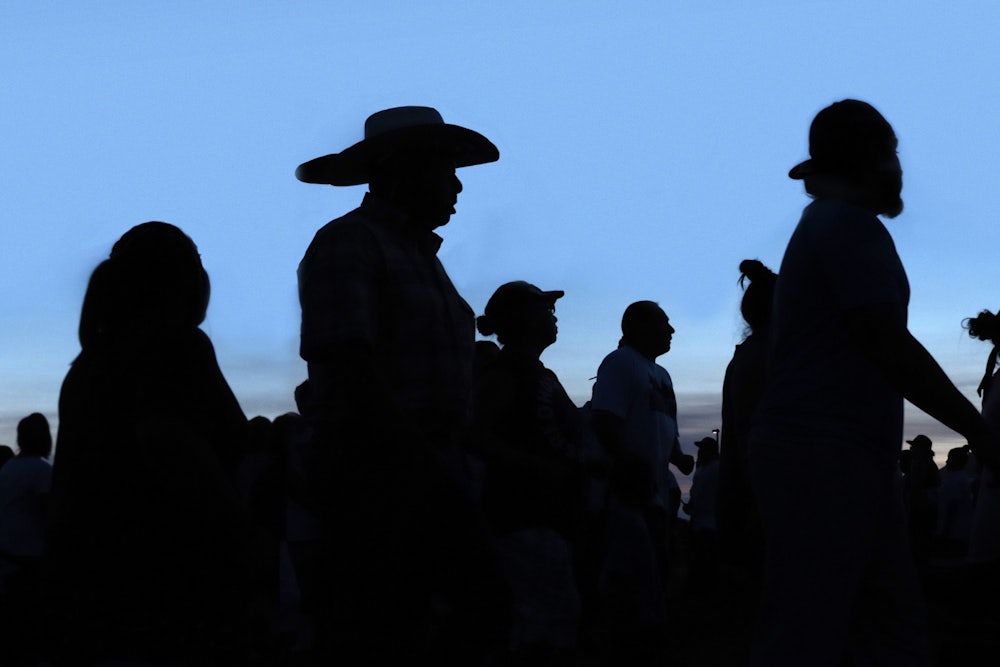The justices announced on Monday that they will review Royal v. Murphy, an unusual death-penalty case out of Oklahoma. At issue is whether the state had the jurisdiction to prosecute Patrick Murphy, a member of the Muscogee Creek Nation, for the murder of another Creek man on what was once tribal land. (The federal government normally prosecutes serious crimes between Native Americans on tribal lands.)
Oklahoma argued in the lower courts that Congress extinguished the Creek lands when it dismantled tribal governments in the early twentieth century. But the Tenth Circuit Court of Appeals ruled in Murphy’s favor last summer, concluding that those lands remained legally intact because Congress had not explicitly abolished them. As I noted in March, Oklahoma warned the justices that the decision would have dramatic implications:
If the Tenth Circuit’s ruling stands, the state’s criminal jurisdiction in that territory would be reduced to minor offenses like traffic violations and crimes against non-Indians. Federal and tribal courts would take over all other cases, with serious crimes left to the federal government to investigate and prosecute. State officials cast the loss of jurisdiction in dire terms, especially if the Murphy ruling is applied to other tribes. “Stripping Oklahoma of criminal jurisdiction over all Indians in this densely populated area, or even worse, in the entire eastern half of the state, would render Oklahoma a fractured, second-class state,” Oklahoma officials told the Supreme Court.
Legal experts I spoke with downplayed the state’s grim portrayal, and Murphy’s lawyers told the justices earlier this year that the state’s “claims of mass disruption are overstated and misdirected.” States routinely hammer out agreements with tribal governments to handle criminal-jurisdiction matters, they argued, and the regulatory impact would be minimal under existing legal precedents. Oral arguments will be heard in the case after the Supreme Court reconvenes for its upcoming term this fall, and a ruling could come as soon as this winter.
